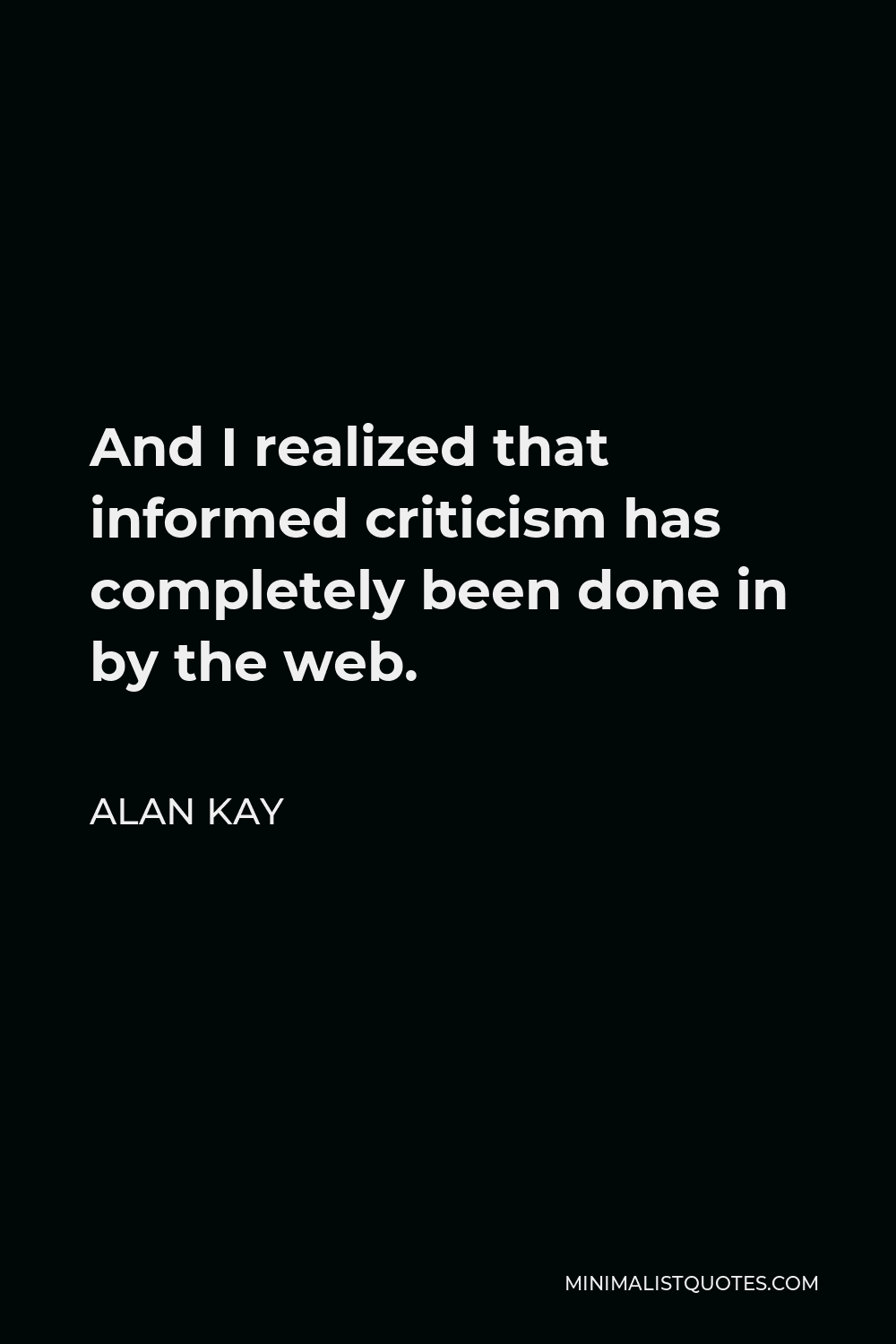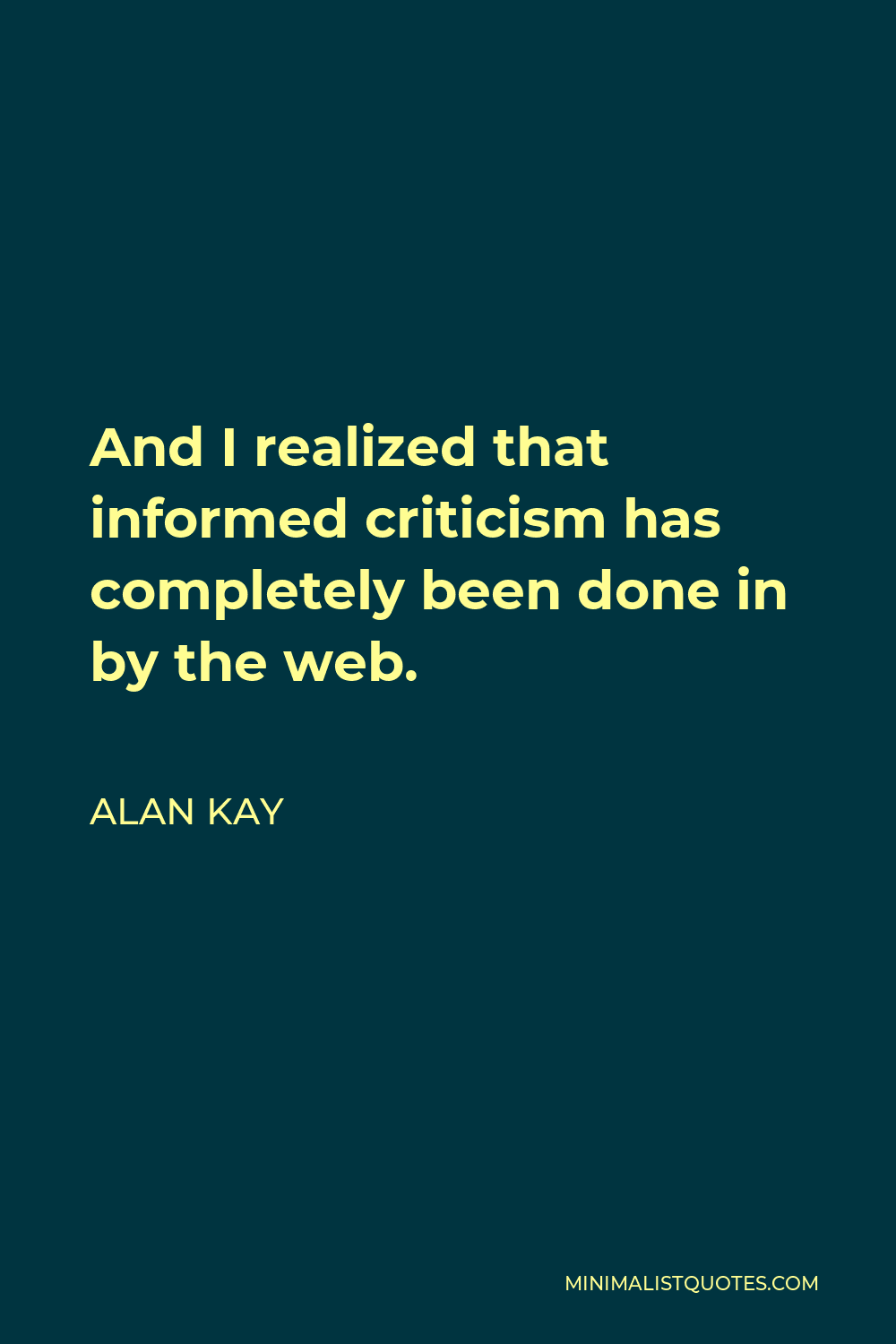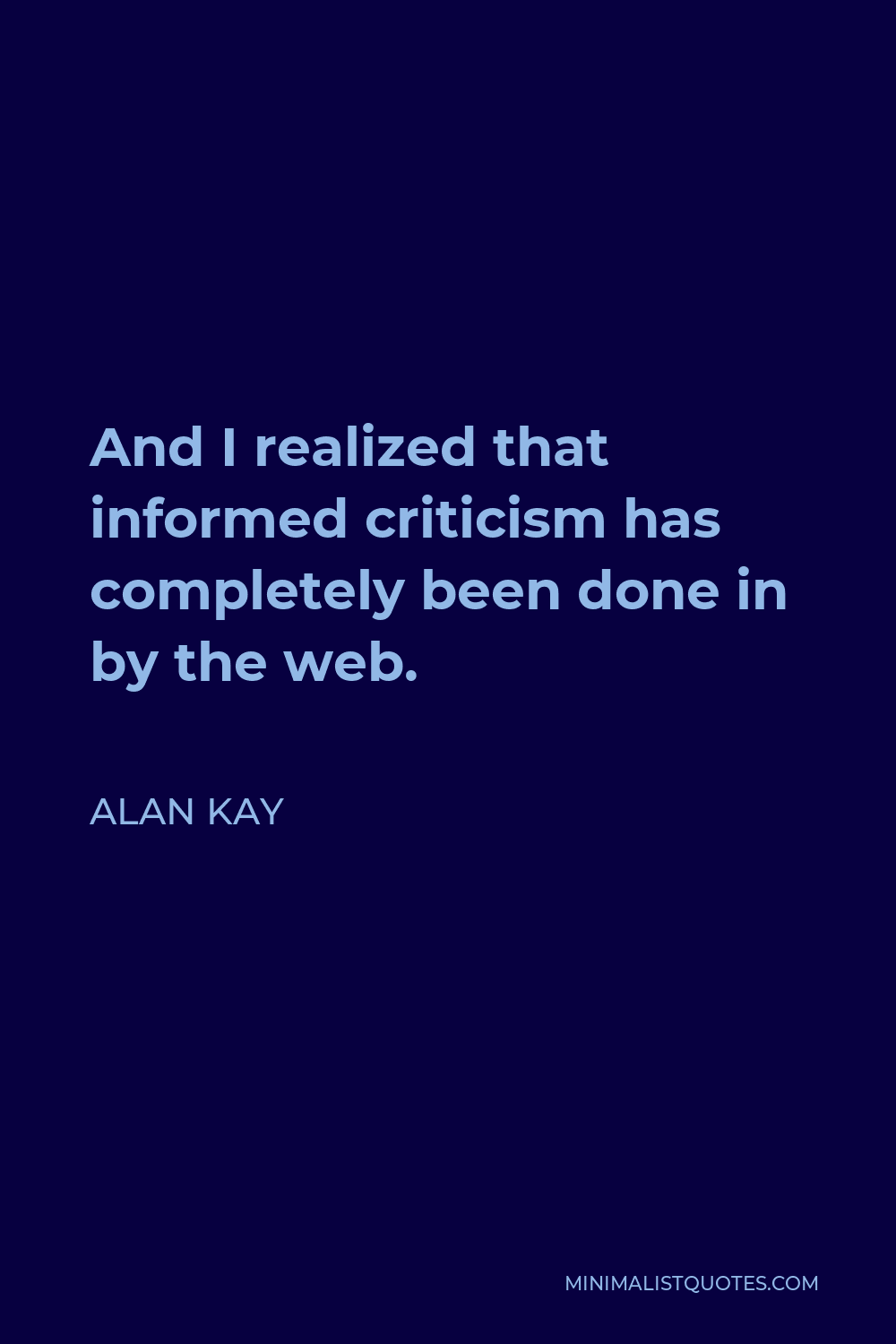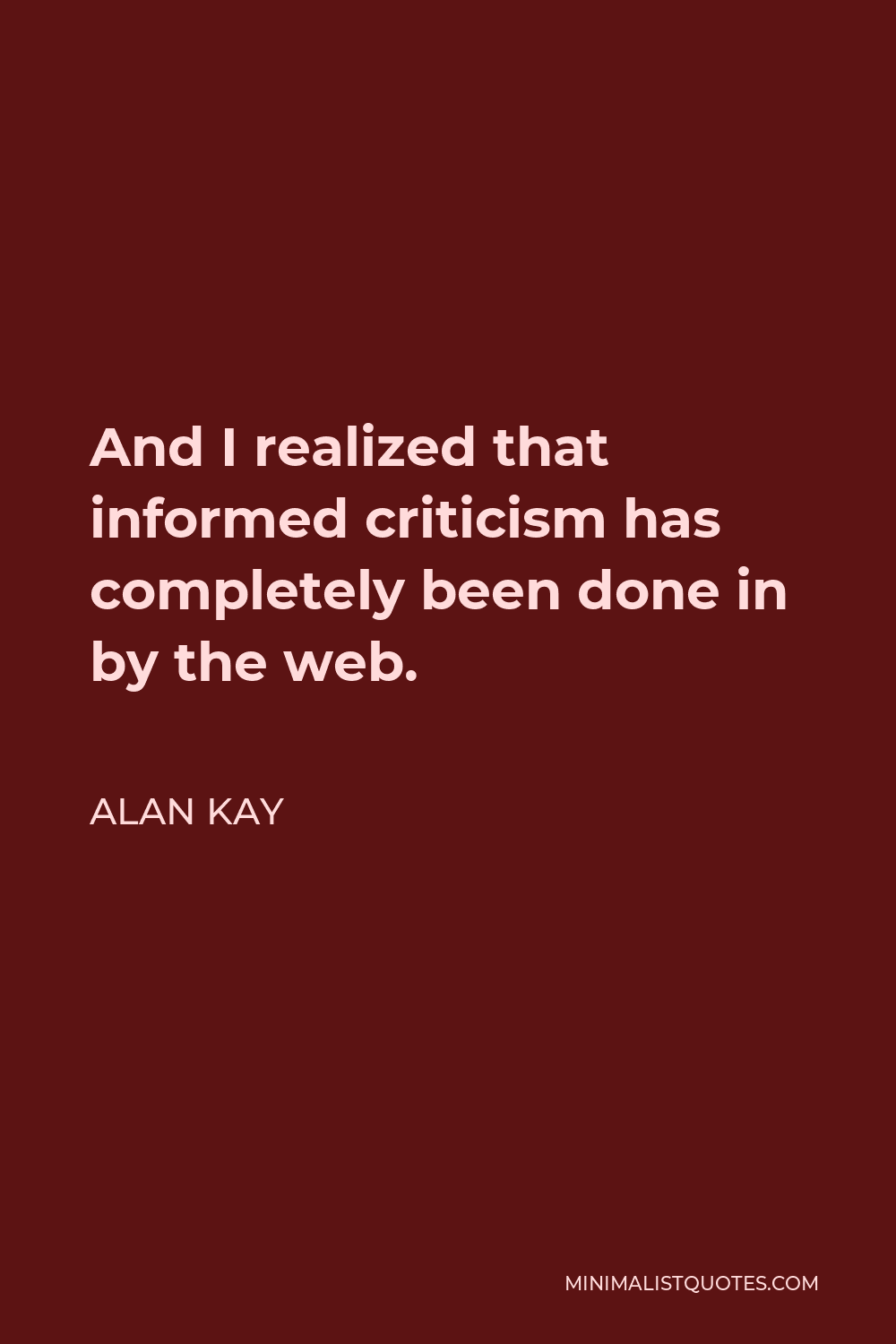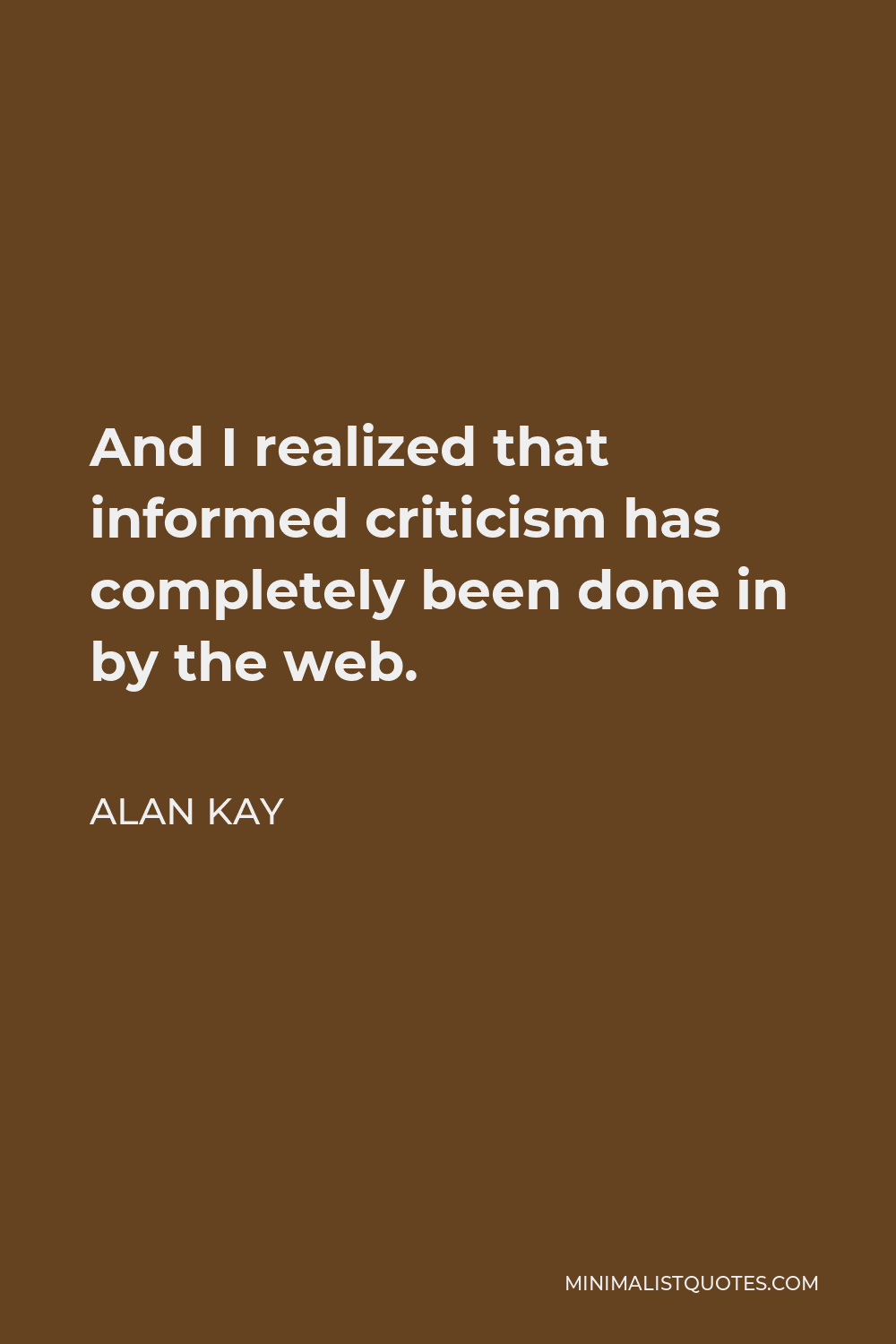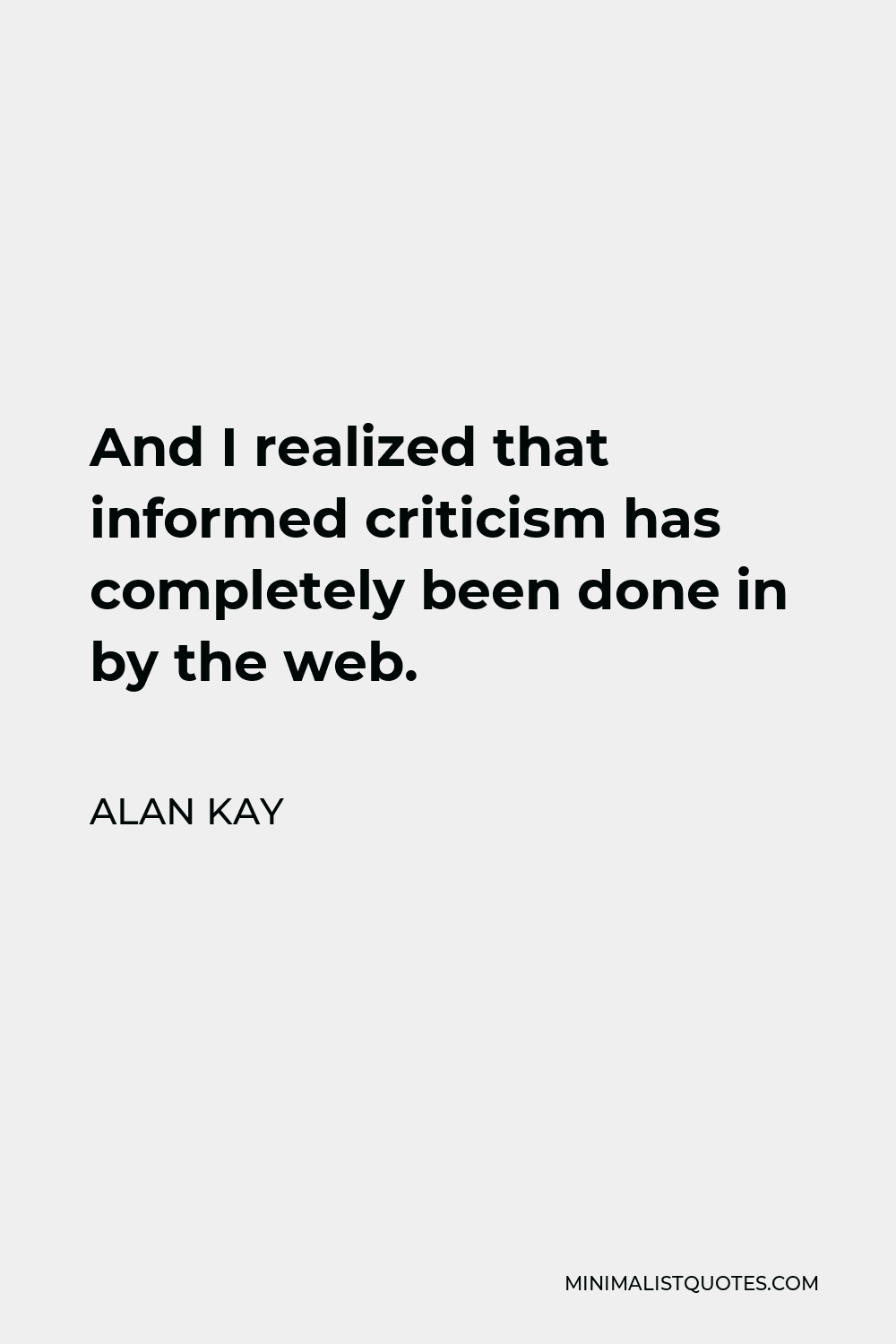Bad criticism drives good criticism out of circulation. You just can’t criticize anything.
ALAN KAYAnd I realized that informed criticism has completely been done in by the web.
More Alan Kay Quotes
-





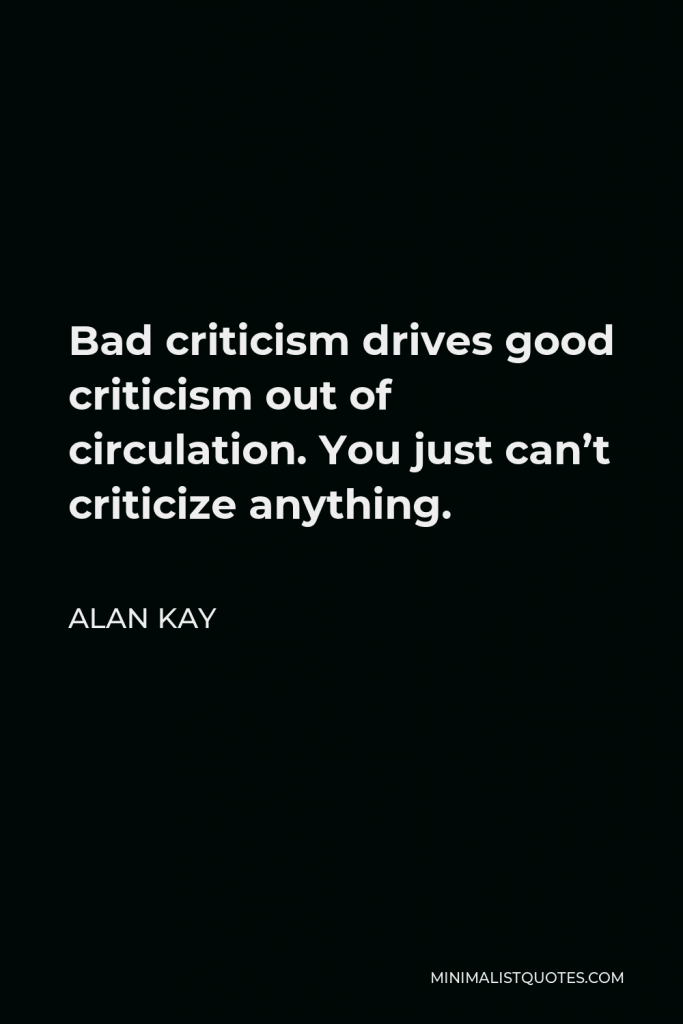

-





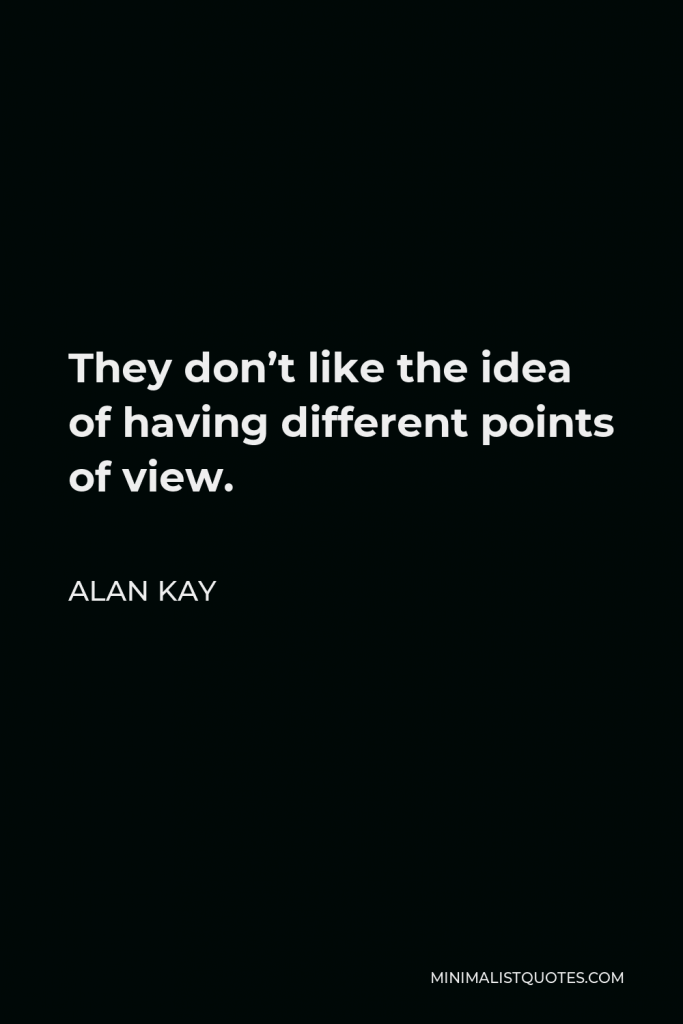

They don’t like the idea of having different points of view, so it was a battle.
ALAN KAY -





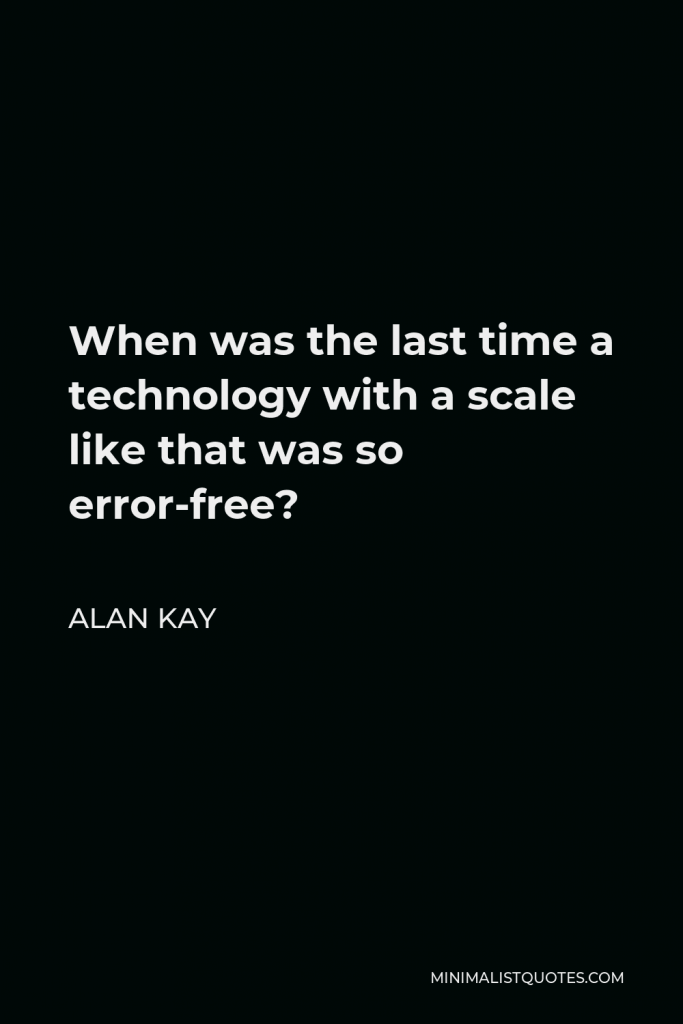

When was the last time a technology with a scale like that was so error-free?
ALAN KAY -





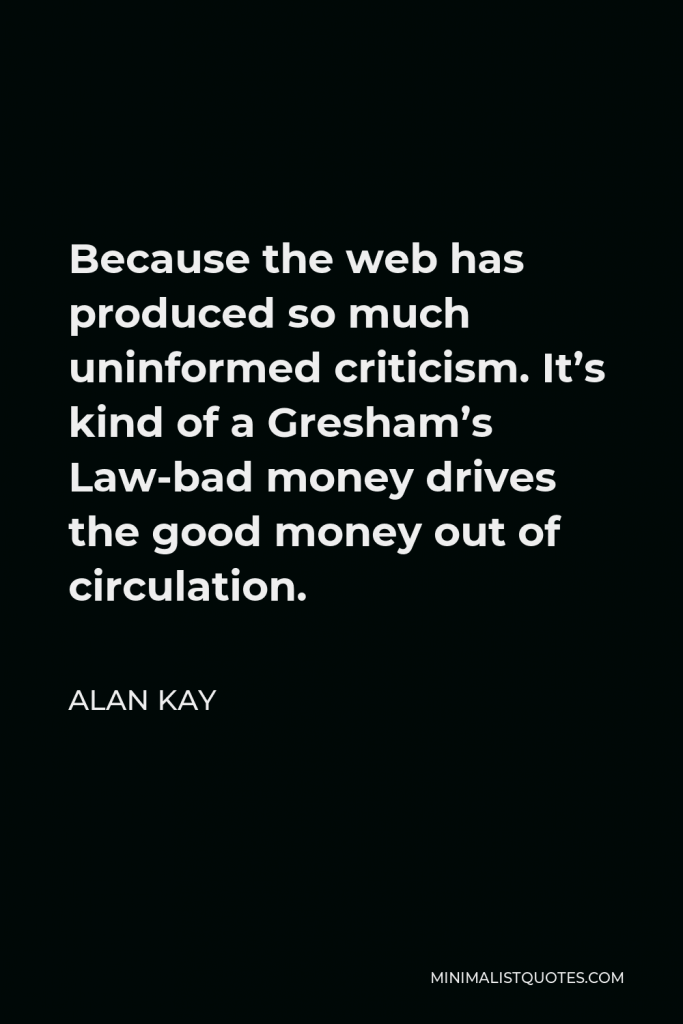

Because the web has produced so much uninformed criticism. It’s kind of a Gresham’s Law-bad money drives the good money out of circulation.
ALAN KAY -





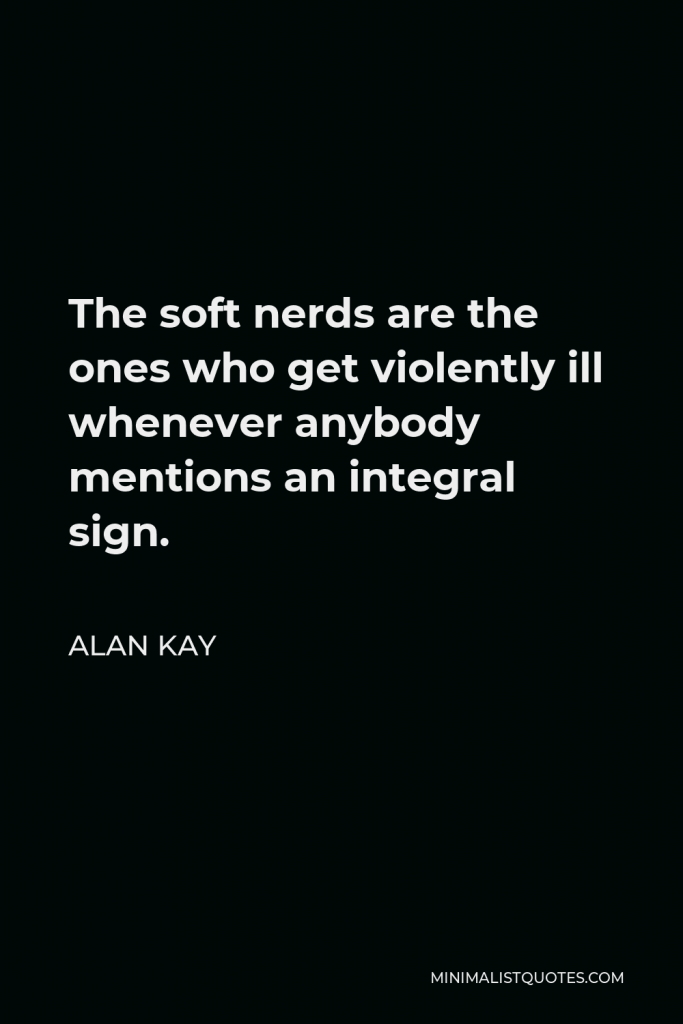

The soft nerds are the ones who get violently ill whenever anybody mentions an integral sign.
ALAN KAY -





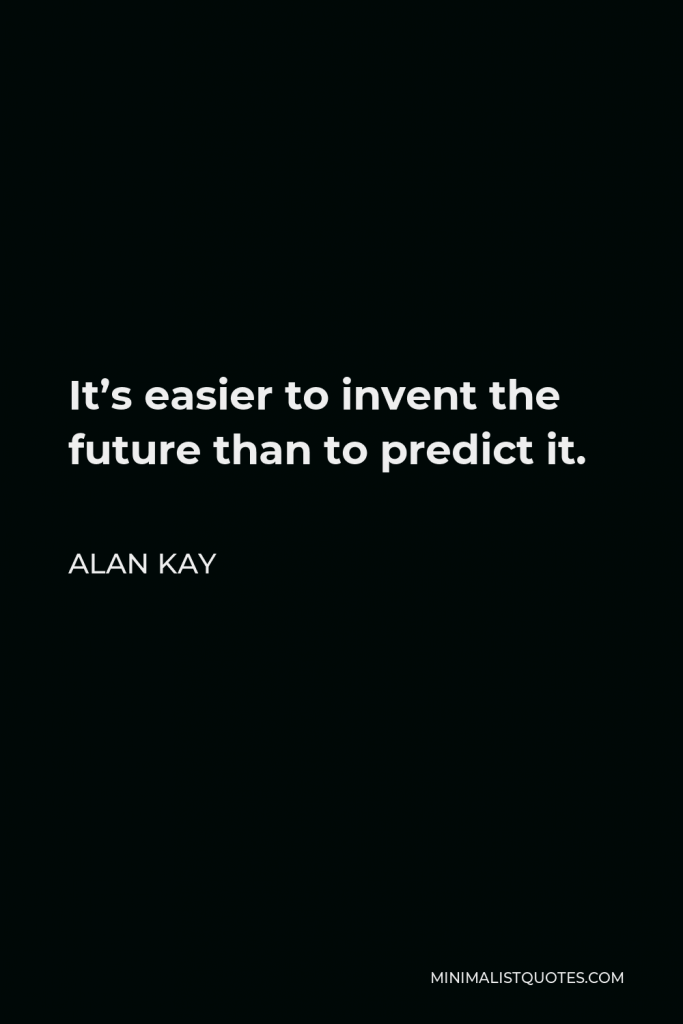

It’s easier to invent the future than to predict it.
ALAN KAY -





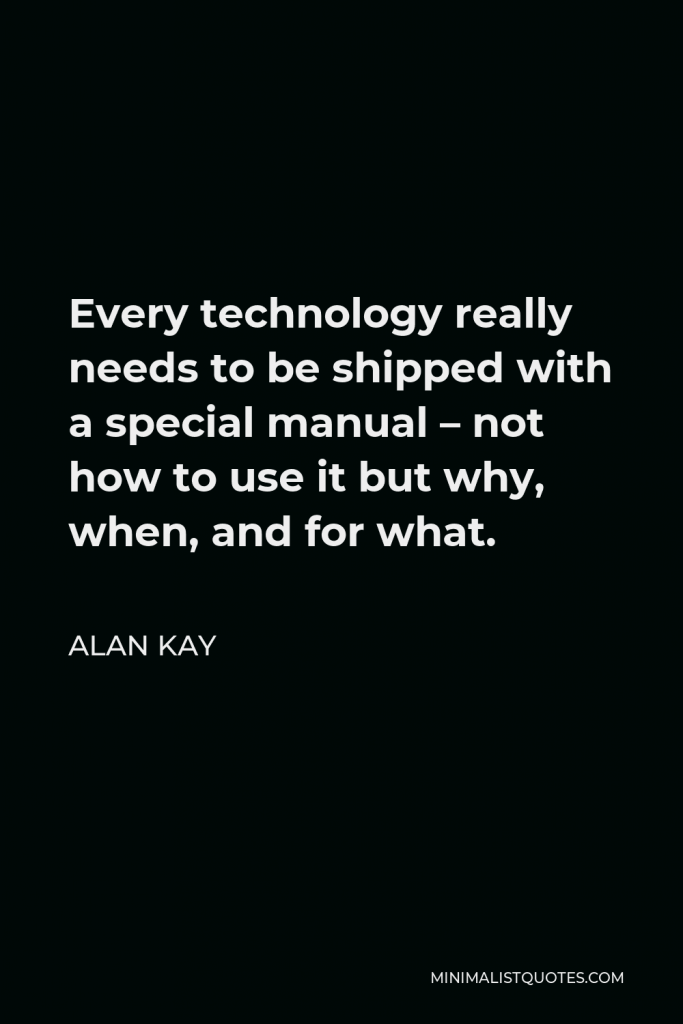

Every technology really needs to be shipped with a special manual – not how to use it but why, when, and for what.
ALAN KAY -





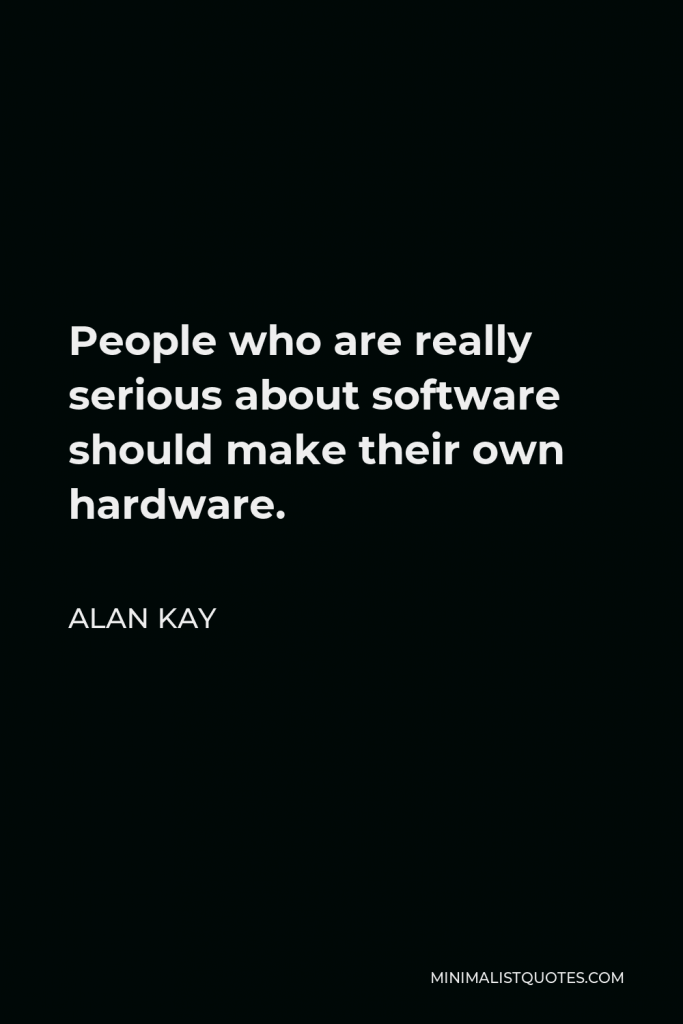

People who are really serious about software should make their own hardware.
ALAN KAY -





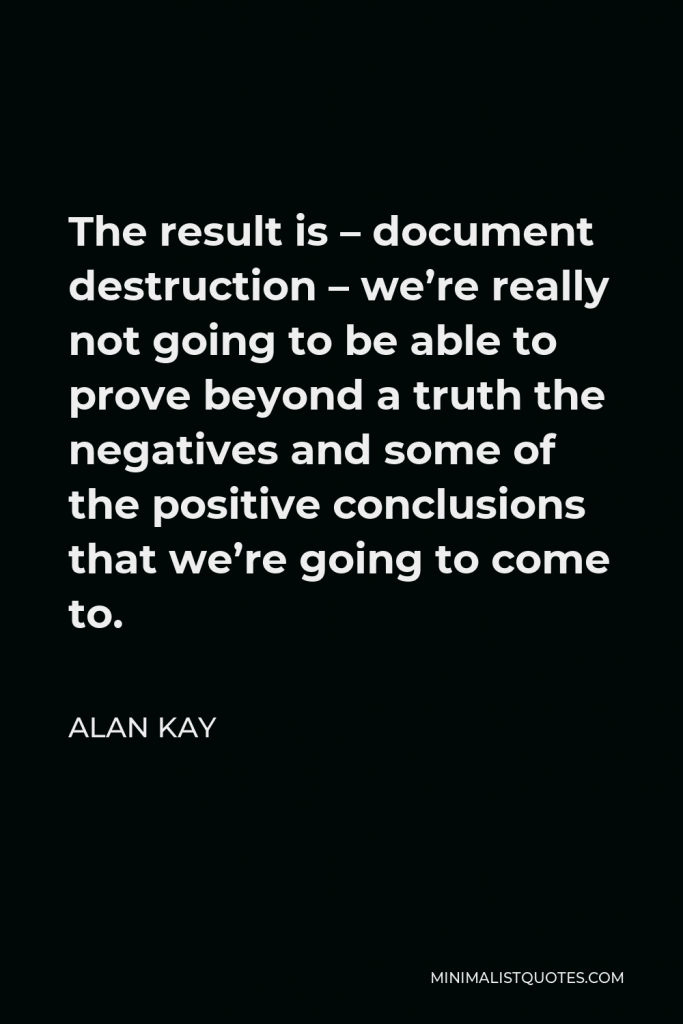

The result is – document destruction – we’re really not going to be able to prove beyond a truth the negatives and some of the positive conclusions that we’re going to come to.
ALAN KAY -





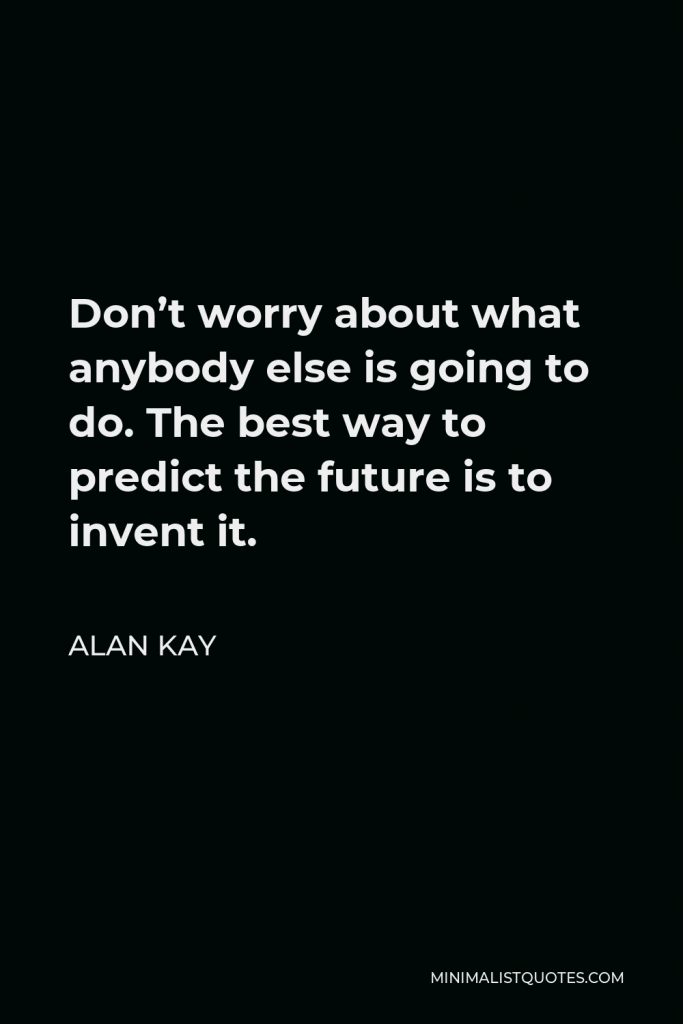

Don’t worry about what anybody else is going to do. The best way to predict the future is to invent it.
ALAN KAY -





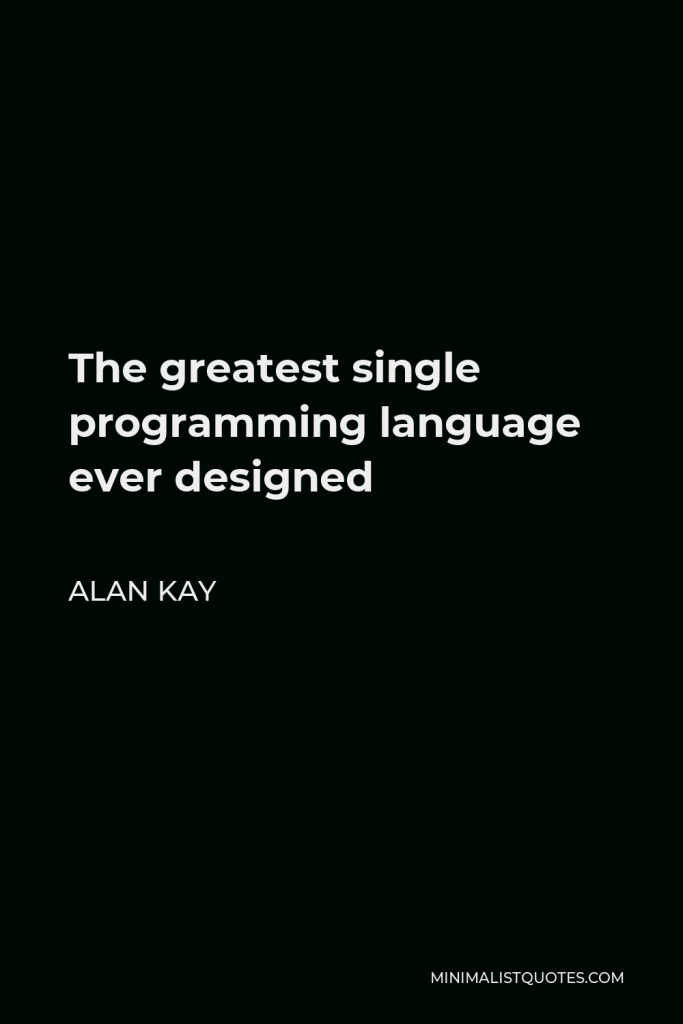

The greatest single programming language ever designed
ALAN KAY -





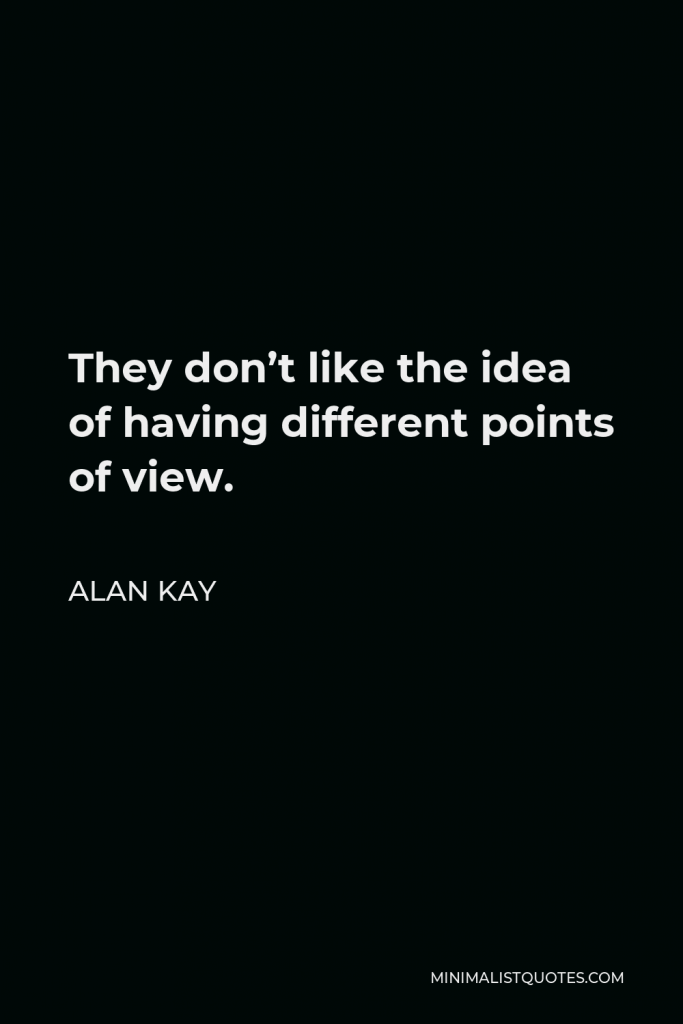

They don’t like the idea of having different points of view.
ALAN KAY -





![Alan Kay Quote - When the Mac first came out, Newsweek asked me what I [thought] of it. I said: Well, it’s the first personal computer worth criticizing.](https://minimalistquotes.com/wp-content/uploads/2022/08/when-the-mac-first-came-out-newsweek-asked-me-what-683x1024.jpg)

When the Mac first came out, Newsweek asked me what I [thought] of it. I said: Well, it’s the first personal computer worth criticizing.
ALAN KAY -





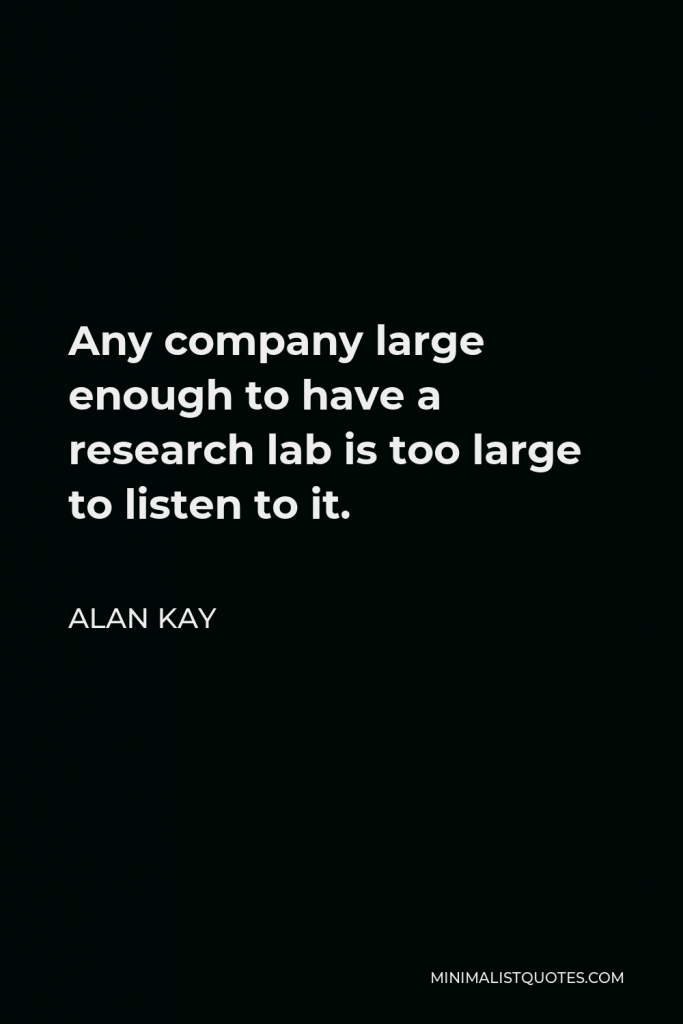

Any company large enough to have a research lab is too large to listen to it.
ALAN KAY -





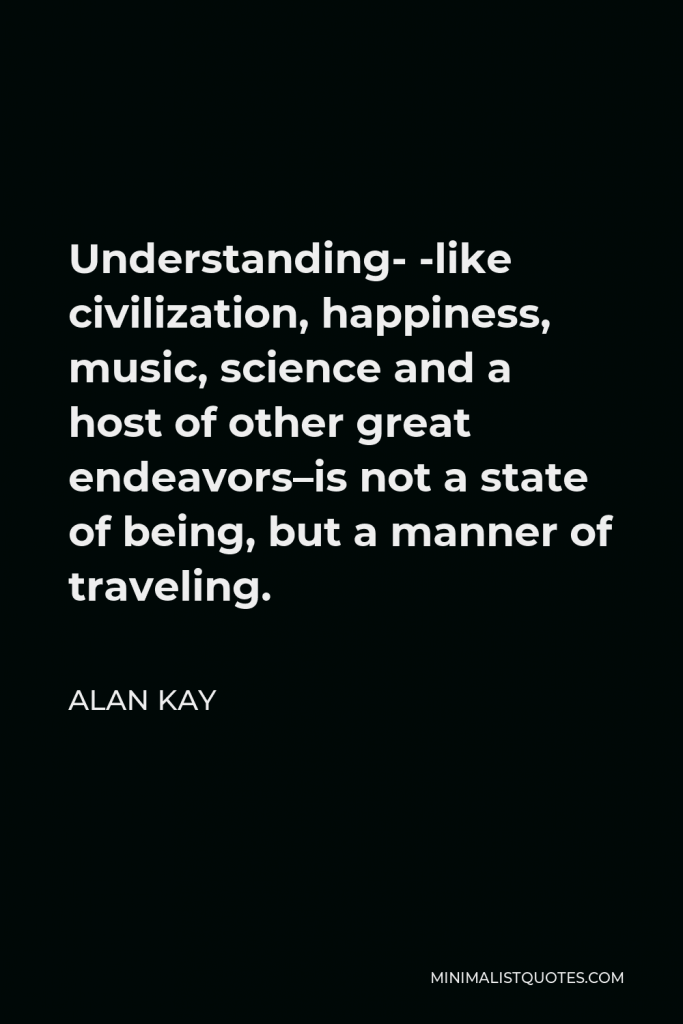

Understanding- -like civilization, happiness, music, science and a host of other great endeavors–is not a state of being, but a manner of traveling.
ALAN KAY -





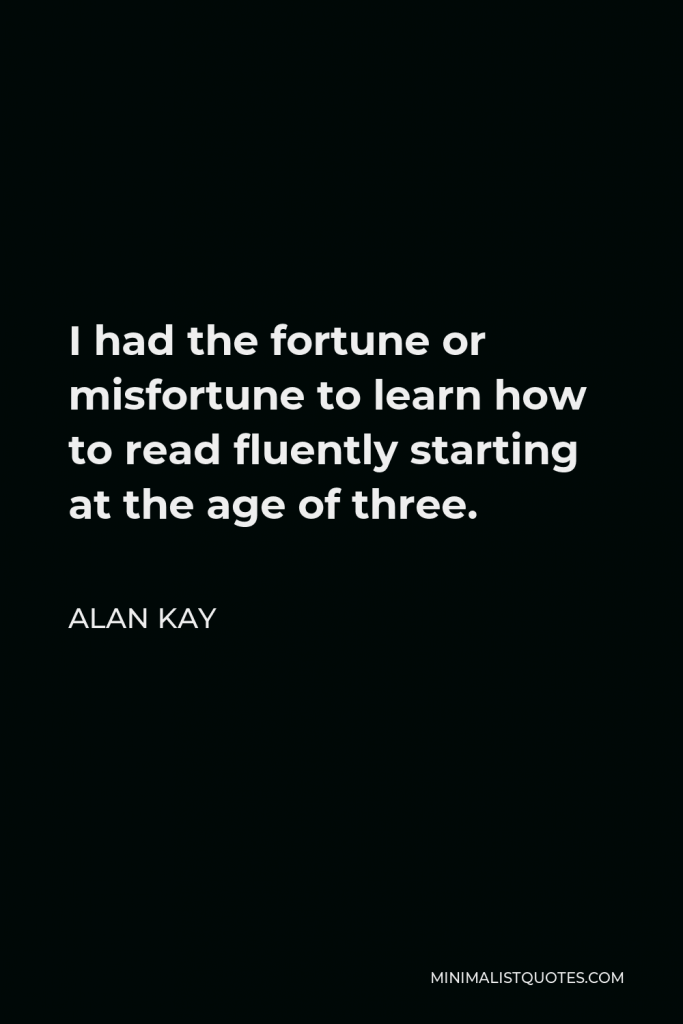

I had the fortune or misfortune to learn how to read fluently starting at the age of three.
ALAN KAY
